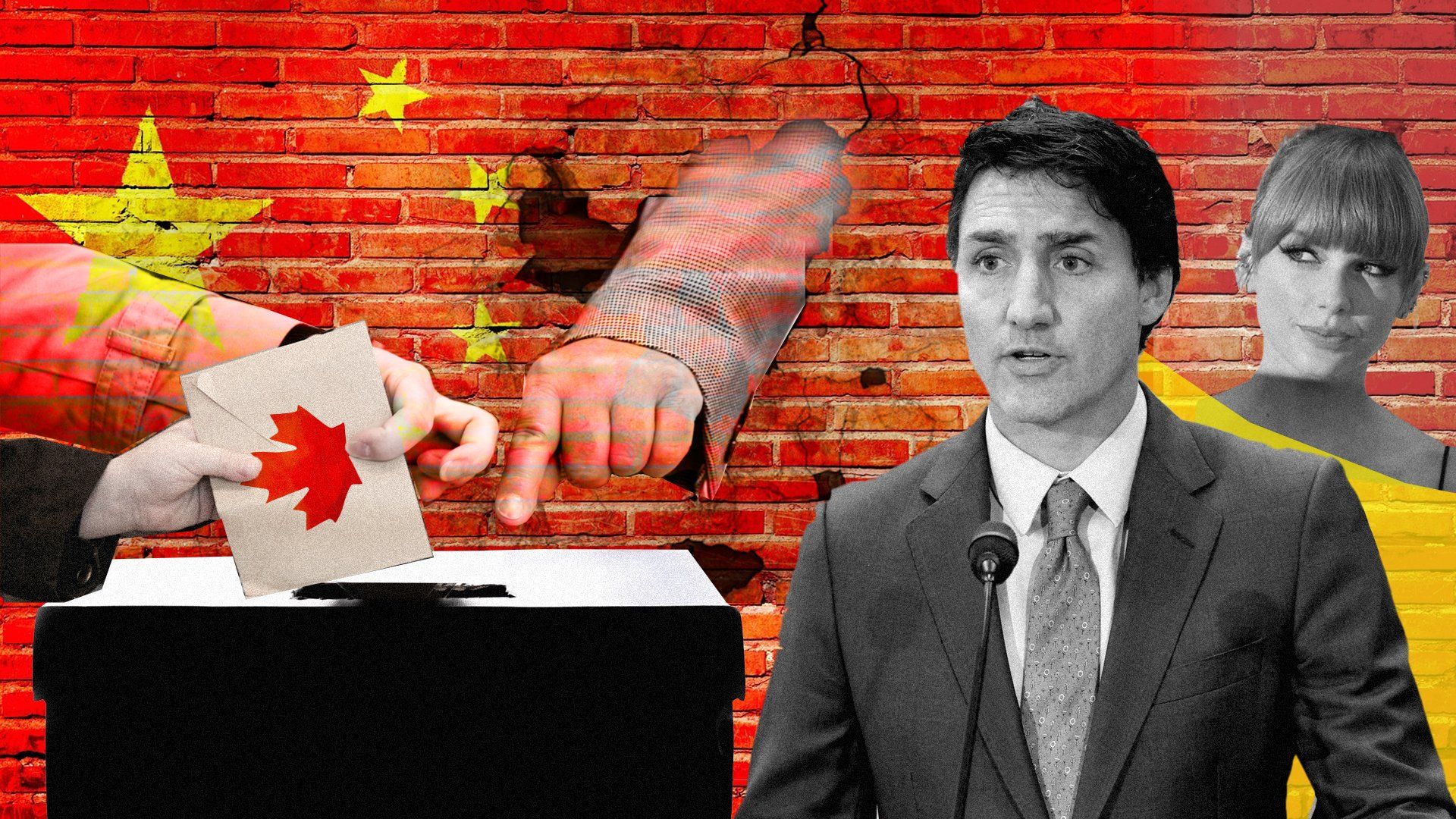This is the year of elections, with half the world’s population set to vote in more than 65 elections, so it’s no wonder there’s a lot of urgency over one issue: election interference.
Right now, Canada is holding a critical independent inquiry into election interference from China and Russia and yet, they naively missed the most disruptive election conspiracy mastermind of them all: Taylor Swift.
Or not.
In the department of “Weapons of Mass Distraction,” Swift merits a brief diversion before we get to China and Russia. As we covered in the Daily this morning, there is a double album of MAGA paranoia around China and Russia – sorry, I keep doing that … around Taylor Swift – and her plot to tilt the US election to Joe Biden.
One-time Republican presidential candidate-turned-Trump Hype Man Vivek Ramaswamy courageously exposed how Swift and her beau Travis Kelce, the future Hall of Fame tight end from the Super Bowl-bound Kansas City Chiefs, have it all cooked up. Working alongside, um … Deep Football and the Democrats, Swift and Kelce have, apparently, hatched an anti-Trump football plot.
“I wonder who’s going to win the Super Bowl next month,” Ramaswamy tweeted out knowingly, “and I wonder if there’s a major presidential endorsement coming from an artificially culturally propped-up couple this fall.” What? No way! Vivek doubled down on his doubters, with one of those cryptic-conspiracy bro things that sound smart but then you realize you have no idea what he actually means.
“What the MSM calls a “conspiracy theory” is often nothing more than an amalgam of incentives hiding in plain sight,” Ramaswamy tweeted. “Once you see that, the rest becomes pretty obvious.” To which Elon Muskretweeted, “Exactly.”
Exactly what is in plain sight? That there is a Super Bowl-Swiftian election interference plot? That a billionaire musician, her record company, the NFL, Travis Kelce, and Joe Biden all got together to fix the outcome of the NFL playoffs and the Super Bowl in order to support the Democrats and undermine Donald Trump?
The Swift-Kelce-NFL-Biden fever dream has been widely repeated and reported on, but it has zero merit, as we covered this morning. Swift has a history of supporting Democrats in places like Tennessee in 2018. In other words, like millions of people, she supports a political party. That is not a conspiracy, that’s called “voting.” Many other celebrities support Trump and Republicans. That is also called voting.
Yes, Travis Kelce does vaccine ads for a pharmaceutical company. Again, not a conspiracy against Trump, but the choice of a man who, like hundreds of millions of people, believes in the science of vaccines – and in making a buck. It’s no more complicated than that. This isn’t a plot for election interference, as folks like Ramaswamy allege; it’s a paranoid new deflection from the very real act of attempted election interference that was the Jan. 6, 2021, attack on the US Capitol.
But foreign election interference is troubling, and Canada’s inquiry merits attention. The independent “Public Inquiry into Foreign Interference in Federal Electoral Processes and Democratic Institutions” – catchy name, I know, so let’s go with the “Hogue Inquiry,” after the commissioner Justice Marie-Josée Hogue, who is overseeing it all — kicked off this week. It is looking into allegations that China and Russia interfered in the 2019 and 2021 federal elections.
Just this morning, Global News reported that it had obtained a secret briefing note from Canada’s spy agency CSIS that says China attempted to interfere with the last two Federal elections. “We know that the PRC sought to clandestinely and deceptively influence the 2019 and 2021 federal elections,” Stewart Bell writes in his superb story today.
That’s exactly why Canada’s allies are watching this case so closely, especially in the US. “Much of the attention about foreign interference in American democratic processes has focused on Russia and its malicious online activities,” Stephanie Carvin, a Carleton University professor and former CSIS national security analyst, tells me. “But Canada presents an important case study in how other state actors, namely (but not exclusively) China, conduct such operations. This includes the harassment of dissidents, alleged interference in electoral nomination processes, and targeting of politicians. Western countries need to observe and learn from the experience of other countries, which may impact them one day.”
Despite the recent assurances from President Xi Jinping to President Joe Biden that China will not interfere in the election, FBI Director Christopher Wraywarned a House Committee on China this week that Beijing has a very sophisticated plan to disrupt the upcoming election and also hack critical infrastructure.
Other countries, like Russia and Iran, are playing copycat. “Unfortunately, malicious actors are learning from one another, and Western countries should expect more foreign interference in the future,” Carvin says. “I am particularly worried about artificially generated content ‘deepfakes’ that may alter perceptions of current events and politicians.”
Canada, the US, and its allies are arming up for a war on the heart of democracy: elections. “If there is a good news story here, it is that countries are not going through this alone,” Carvin tells me. “By working together, states can better inform themselves about what is happening around the world, to make their democratic institutions more resilient.”
Big picture? It might be best not to confuse Swiftian halftime entertainment with political election interference. Both are worth paying attention to, but they play in very different arenas.
